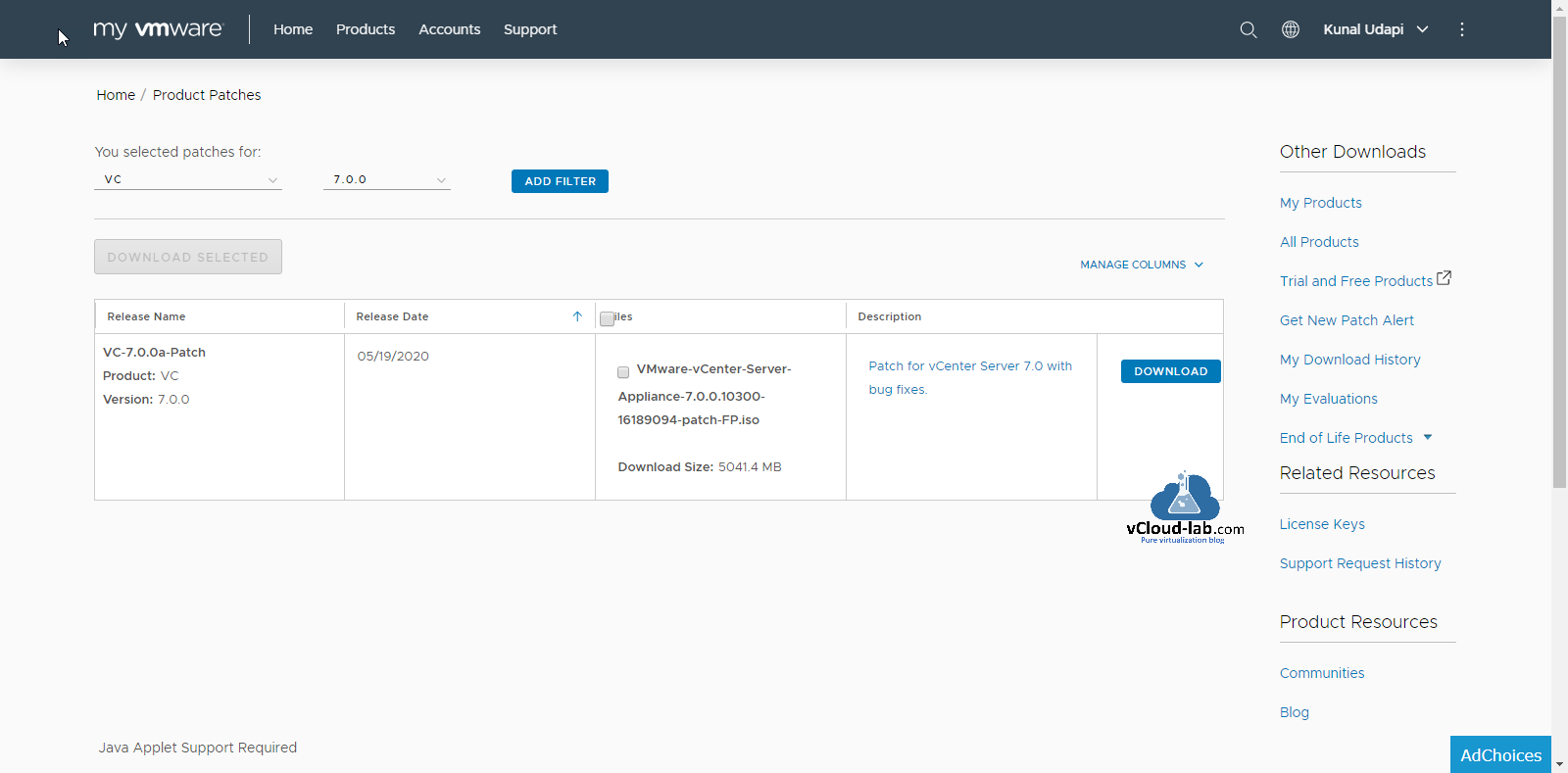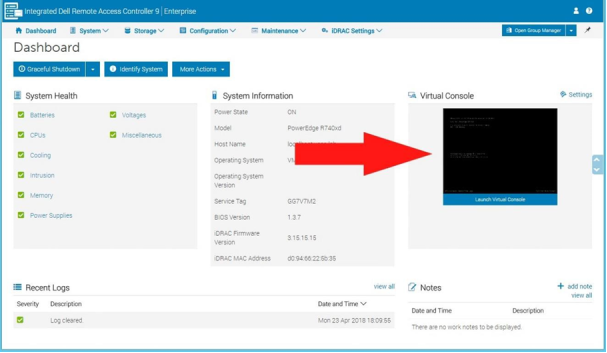

The current version of the Virtual Appliance is tested and supported in the following environment:
#Vcenter download for virtual console how to#
Read this section to learn how to deploy the Virtual Appliance. How do I start, stop, and check the status of the console and engine services?.It is NOT intended for enterprise and production deployments. Deletion: The datastore will be disconnected from all connected hosts, and will be destroyed and all the content will be deleted.The Virtual Appliance has limited disk space and is only intended for product evaluation purposes.Disconnect/connect: By default all the cluster members will be selected in order to disconnect a datastore from or connect it to selected hosts.Users can unselect some hosts when the new datastore is not required on all hosts. Creation: By default all the cluster members will be selected in order to create and connect the new datastore to all hosts.Operations from VMware Cluster: The datastore can be created for all selected members inside cluster.Besides that, all content in the datastore will be deleted. Deletion: The datastore will be disconnected from all connected hosts, and will be destroyed.Creation: The datastore will be created only for the selected host.ĭisconnect/connect: The datastore can be disconnected from or connected to selected host.If the vSphere Web Client connects to a vCenter server, the plug-in will be able to operate on multiple VMware hosts to facilitate each process. without vCenter to centralized management its host, the plug-in will operate on the host only. Once the ESXi is managed by vSphere Web Client as a standalone host, i.e. The primary functions in the plug-in should be listed as below functionality:īased on user configuration, vSphere Web Client plug-in may support different datastore processes. QNAP vSphere Web Client Plug-in offers different components with specific features. Once one or multiple QNAP Storages have been added to the plug-in, you can create, mount, unmount, or destroy the datastores.ĭatastores Management Introduction Primary Functions Select this option to enable NFS host access control, and allow only the VMware hosts to connect to the NFS shares that will be used as datastore. Select this option to enable LUN masking on the QNAP ES NAS.Īll the new LUN created as datastore by plug-in will be secured with LUN masking, so that only the VMware hosts with access right to the LUN can read and write data to the LUN. Then fill out the NAS info into the plug-in to ass the QNAP storage. Add QNAP NAS into “QNAP Storage” by clicking “+”.Once the plug-in has been installed, you can follow the steps below to add a QNAP NAS and manage it by the plug-in to create a new datastore. To verify whether the plug-in is installed, or to check the plug-in version, open vSphere Web Client console and navigate the menu ”Administration” > “Client Plug-Ins”.
#Vcenter download for virtual console install#
To install the plug-in ,please right click on "setup.cmd" and click "Run as administrator" to install the product from the local computer where the vSphere Web Client is.Preliminary Settings Installation and Verifying Wait for the plug-in to process the task.Easy status control of the ES NAS and datastores.Ĭreating datastores in a cluster with number of N ESXi host Without vSphere Plug-in.Easy creation of datastores from multiple ESXi hosts in just a few clicks.VSphere Web Client integration allows managing VMware datastores which reside on the QNAP ES NAS directly from the vSphere web client console, and verifying the status of all QNAP ES NAS managed by QNAP vSphere web client plug-in. VSphere Web Client Plug-in for QNAP ES NAS is an interface between ESXi and the ES NAS. Guideline for Choosing and Upgrading NASįunctionality Description QNAP vSphere Plug-in Introduction.Video Surveillance Device Management System.Configure network settings (QNE Network).




 0 kommentar(er)
0 kommentar(er)
